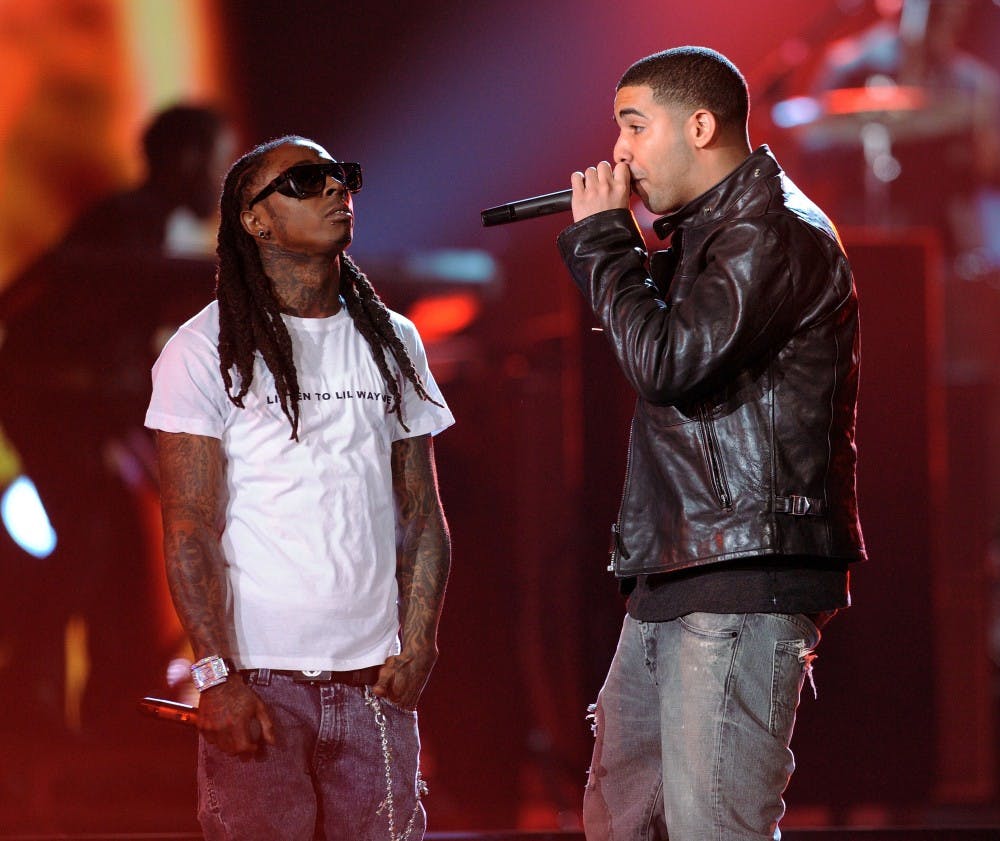Powerhouse pair Lil Wayne and Drake reconnect on “Family Feud,” an energetic and up-to-date remix of Jay-Z’s track from “4:44.” Released on Dec. 29 as a bonus to Lil Wayne’s Dec. 25 “Dedication 6” mixtape, “Family Feud” consists of two long, breathless verses and no hooks. In true freestyle form, Lil Wayne and Drake take turns dropping sharp rhymes related to pop culture controversies and current events over Jay-Z’s original track.
The track, which dropped the same day as Jay-Z’s “Family Feud” music video, offers a refreshing take on the original. Lil Wayne and Drake’s infectious charisma and rapport result in an elevated remix. Thanks to the mentor-mentee relationship between Lil Wayne and Drake, their version of “Family Feud” consistently highlights their rap skills.
Jay-Z’s original song and recent music video rely on drama and controversy to reel in fans. On the expertly mixed track featuring Beyoncé, Jay-Z addresses disrespect in hip-hop culture and apologizes for his romantic infidelities, all while showcasing his flawless lyricism. However, the track has also caused controversy, most recently from the Catholic League for Religious and Civil Rights, which denounced Jay-Z’s music video for an exploitative portrayal of the Church. Despite controversies, Jay-Z’s track serves as an ideal platform for Lil Wayne and Drake’s talent. In addition to featuring beautiful vocals from Beyoncé, the track samples gospel group The Clark Sisters for a relaxed, jazzy finish.
With various references to the current news cycle and specific conflicts within the hip-hop culture and community, Lil Wayne and Drake contribute new perspectives to Jay-Z’s “Family Feud” concept. While Jay-Z focuses on his broader relationship to hip-hop culture and controversy on the original track, Drake offers a calculated and organized verse on recent issues and events in the industry. Lil Wayne’s verse lacks current events references but makes up for it with unmatchable flow and distinct style. Together, the artists feed off each other’s energy to produce an unmistakable complement to Jay-Z’s original track.
In line with the “Family Feud” theme, Drake flexes his socially-conscious muscles as he drills through topics like Diddy and Colin Kaepernick's plans to purchase the Carolina Panthers and Meek Mill’s questionably long prison sentence. His lengthy verse is filled with memorable lines like “We gon' have to break the billi' curse/I need my paper long like ‘A Milli’ verse” and “Or too long like a sentence from a Philly judge/F—k is the point in all the beefin' when we really blood?” As indicated by these lines, Drake identifies solidarity as a critical factor behind the strength and success of individuals in the hip-hop industry and black community.
Lil Wayne’s similarly long verse, while not as precise as Drake’s, provides the remix with vibrancy and edge. Unlike Drake, he focuses heavily on bragaddocio and his specific struggles in the music industry. Referencing his legal dispute with Cash Money Records and one of its CEOs, Birdman, Lil Wayne raps, “If money grow on trees, I climb and rest in that b—h/Build a treehouse and knock the bird nest out that b—h.” Lil Wayne then goes on to address his literal family members, from his mother to his children. Though his verse is thematically inconsistent compared to Drake’s, Lil Wayne’s natural talent shines on “Family Feud.”
The track’s freestyle format allows both Lil Wayne and Drake to highlight their greatest rap strengths and complement one another’s styles. By offering fresh takes on the current controversies and issues of the hip-hop industry, the mentor-mentee pair do justice to Jay-Z’s sophisticated track.







